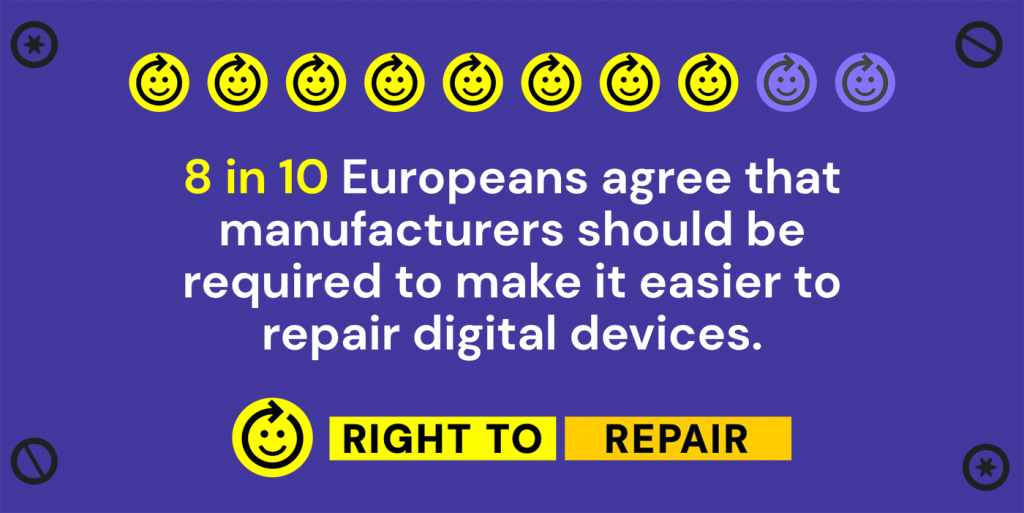Read this post in French on Repair Together’s website
Right to repair has never been as needed as it is now.
Just forty days ago, we were celebrating a key milestone in pushing for Right to Repair in Europe: the launch of the EU’s Circular Economy Action Plan. The CEAP clearly spells repairable products as a priority for the European Green Deal, and includes specific mention of regulating smartphones, as we had asked as part of our campaign. Perhaps even more importantly, the European Commission chose to focus on product repairability, and specifically on right of repair, as a key theme when launching the Action Plan.
Now, less than a month and a half since the announcement, Europe finds itself overwhelmed in the midst of the Covid-19 crisis, and there are worrying signs that work to deliver these bold commitments might be delayed.
Reuters reported on a leaked document highlighting postponement of work linked to the European Green Deal, including initiatives to give consumers better information on the lifespan of products, their repairability and the quality of repair services available. While this is not yet confirmed, it’s a very worrying sign.
This leak came days after big tech and industry groups publicly asked the Commission to delay already-agreed regulations: for example, “delay certain new ICT product compliance obligations” (Digital Europe), and “delay the current 65% WEEE [electronic waste] collection target for a two-year period” (APPLiA).
Legitimate, pandemic-related reasons for delays to specific measures must be targeted and proportionate and must be subject to scrutiny by the public and our elected officials.
The pandemic must not mean a silent default to delay.
We fear that pressure from industry is growing, at both national and European level. The current emergency could be used also to justify delays to ground-breaking policies that will help people and the planet – which should progress steadily.
If one thing is clear is that repair is essential, during this crisis, and beyond it. Europeans see this as a priority: according to the recent Eurobarometer survey, 8 of 10 people think that manufacturers should be required to make it easier to repair digital devices.

Earth Day tweets from the Commission (Justice & Consumers DG and EU circular economy stakeholder platform) acknowledge the centrality of repair.
Yet, we must ensure that words are turned into deeds without undue delay, to avoid Right to repair regulations being postponed or weakened in the difficult months ahead.
The post covid-19 world needs to be resilient and repair is an essential tool to achieve this resilience while allowing consumers to save money, which will be even more crucial for Europeans from now on.

